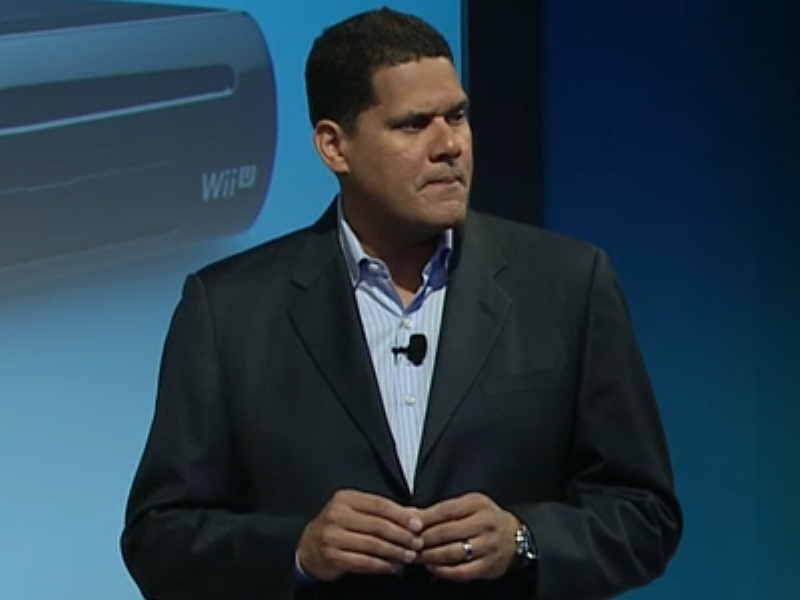Wii U Just Needs to Sell One Title to Be Profitable
Nintendo's had a harder time this past fiscal quarter, but the Wii U being sold at a loss isn't too much of a problem.
When Nintendo made the decision to leapfrog competitors Microsoft and Sony by announcing its next-generation console early, it also took on the risk of competing with much cheaper current generation hardware. One of the pressures that Nintendo was forced to face was keeping the costs of the Wii U low enough to keep it competitive with the Xbox 360 and PlayStation 3.
Back in October, the company revealed that it would be selling the Wii U at a loss, not only because of hardware costs, but because of the yen's appreciation. As a result, Nintendo's profit margin for that fiscal quarter wasn't quite as high as investors had hoped it to be and naysayers were already predicting the company's doom.
However, the loss in selling the Wii U hardware can be quickly turned into a profit. In a recent interview with Mercury News, Nintendo of America President Reggie Fils-Aime explained that though the Wii U was selling at a loss, "[…]as soon as we get the consumer to buy one piece of software, then that entire transaction becomes profit positive."
Since buyers of the Wii U are unlikely to leave the store with just a Wii U in hand and no games, virtually all sold consoles are a guaranteed profit. If Wii U sales manage to even somewhat resemble the Wii's sales, then Nintendo's got yet another moneymaker on its hands.
Contact Us for News Tips, Corrections and Feedback
Get Tom's Hardware's best news and in-depth reviews, straight to your inbox.
Catherine Cai was a freelance news writer for Tom's Hardware. She covered a variety of tech industry news, ranging from PC components to PC and console gaming.
-
wolley74 Its not a bad system, but they need to get some of their titles on it, like Legend of Zelda and maybe Pikmin 3, get those out there and you're going to be selling a ton moreReply -
killerclick I'm not into consoles but I like what Nintendo did with the Wii vs PS3 and Xbox360. They went in smart and slaughtered the competition in sales, especially the first few years when the consoles were sold at full price. Being able to dominate two competing consoles (Wii was beating both PS3 and 360 2:1 at one point) is one thing, but to do it with underpowered hardware and kiddie games really shows business sense and innovation that MS and Sony lacked.Reply -
combine1237 I agree until the new Legend of Zelda comes out there shall be no Wii U in my dwelling.Reply -
A Bad Day If I do recall, the Wii's sale dropped off partially due to an overload of shovelware for the console.Reply -
tipoo Figured they were selling at a very small loss, it isn't Nintendos style to take a loss on hardware at all. They certainly weren't going to pull a Sony and sell a console for 200 less than it takes to make (the PS3 cost 800 to make initially).Reply -
lpedraja2002 If they get all the "golden" N64 titles for the WiiU remade in "HD", or at least something comparable to what they did to Ocarina of Time on the 3DS then I, as I'm sure many people will buy a friggin WiiU without a doubt, even though we'll be playing for old titles AGAIN! But the oldies are better than a lot of things being made these days.Reply -
SneakySnake eodeojust what the world needs, another stoneaged hardware console.Reply
Nintendo has never been about specs. The new WiiU though has decent one's (as far as Nintendo's standards go). It handily beats the 360 and PS3 in the spec department, and will be capable of 1080p gaming just fine. As it has been shown time and time again, Nintendo's games are about the gameplay and experience, not the technical stuff.
Why else is it that Super Smash Bros and Mario Kart for N64 (whether it be through emulators or a legit n64) are often the most played video games on my floor in university. They're just so bloody fun
-
kinggraves Wolley74Its not a bad system, but they need to get some of their titles on it, like Legend of Zelda and maybe Pikmin 3, get those out there and you're going to be selling a ton moreReply
LoZ and Metroid are their mid cycle hitters. I wouldn't expect them until next year or even two when sales start to suffer. When they do hit though, the possibilities are fantastic. No more constantly pulling up the menu to switch items for the next puzzle. At least this time they put out a Mario game from the start and some other interesting titles. Hopefully some of the 3rd party titles will sell as well so it encourages more 3rd party devs to return.
What I'd like to see more than anything though isn't any of these, but rather a new Earthbound/Mother title. Still quite curious as to how Konami and Squenix see the new console. -
DarkSable Eodeo, consoles are ALWAYS going to be using hardware from the stone age.Reply
That's just the way they work.
